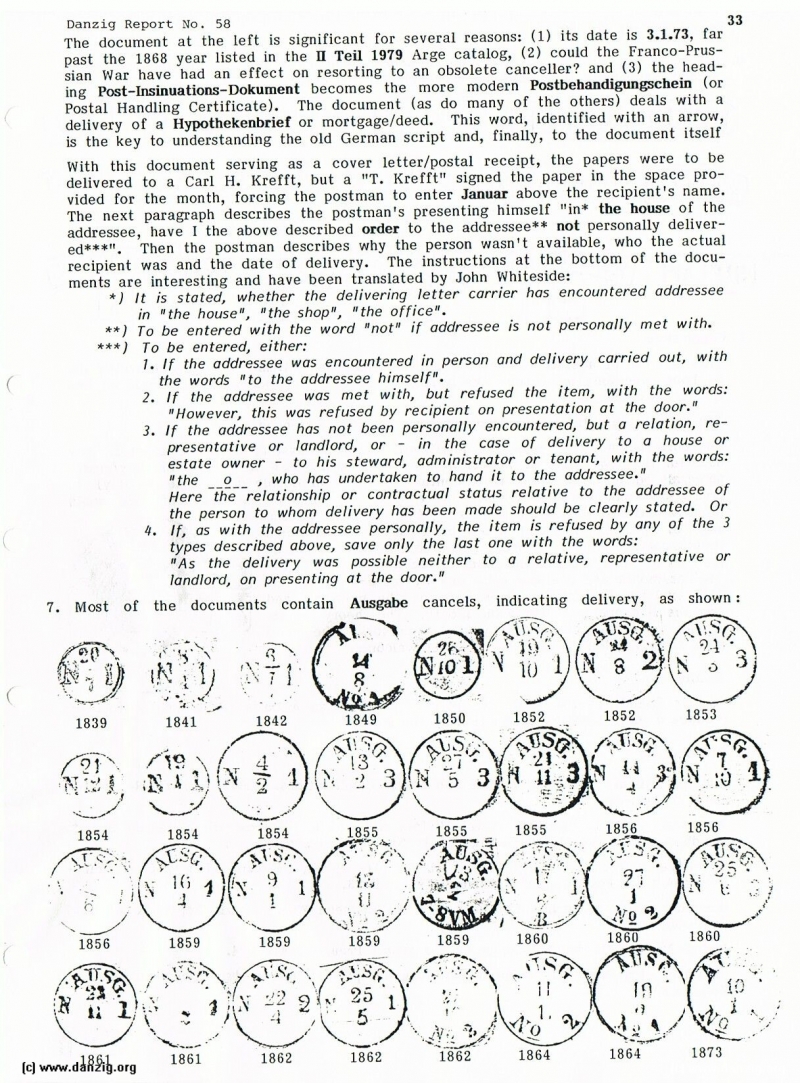
> Zweikreisstempel (2-ring cancel) without year
The document at the left is significant for several reasons: (1) its date is 3.1.73, far past the 1868 year listed in the II Tell 1979 Arge catalog, (2) could the Franco-Pruss ian War have had an effect on resorting to an obsolete canceller? and (3) the heading Post-Insinuations Dokumeflt becomes the more modern Postbehandigungschelfl (or Postal Handling Certificate). The document (as do many of the others) deals with a delivery of a Hypothekenbrief or mortgage/deed. This word, identified with an arrow, is the key to understanding the old German script and, finally, to the document itself.
With this document serving as a cover letter/postal receipt, the papers were to be delivered to a Carl H. Krefft, but a “T. Krefft” signed the paper in the space prov ided for the month, forcing the postman to enter Januar above the recipient’s name. The next paragraph describes the postman’s presenting himself Iin* the house of the addressee, have I the above described order to the addressee** not personally delivere d***”. Then the postman describes why the person wasn’t available, who the actual recipient was and the date of delivery. The instructions at the bottom of the docum ents are interesting and have been translated by John Whiteside:
*) It is stated, whether the delivering letter carrier has encountered addressee in “the house”, “the shop”, “the office”.
**) To be entered with the word “not” if addressee is not personally met with.
***) To be entered, either:
1. If the addressee was encountered in person and delivery carried out, with the words “to the addressee himself”.
2. If the addressee was met with, but refused the item, with the words: “However, this was refused by recipient on presentation at the door.”
3. If the addressee has not been personally encountered, but a relation, rep resentative or landlord, or - in the case of delivery to a house or estate owner - to his steward, administrator or tenant, with the words: “the 0 , who has undertaken to hand it to the addressee.”
Here the relationship or contractual status relative to the addressee of the person to whom delivery has been made should be clearly stated. Or
4. If, as with the addressee personally, the item is refused by any of the 3 types described above, save only the last one with the words: “As the delivery was possible neither to a relative, representative or landlord, on presenting at the door.”
7. Ausgabe cancels Most of the documents contain Ausgabe cancels, indicating delivery, as shown:
Danzig Report Nr. 58 - January - February - March - 1988, Page 34.
Hits: 3697
Added: 24/06/2015
Copyright: 2026 Danzig.org

